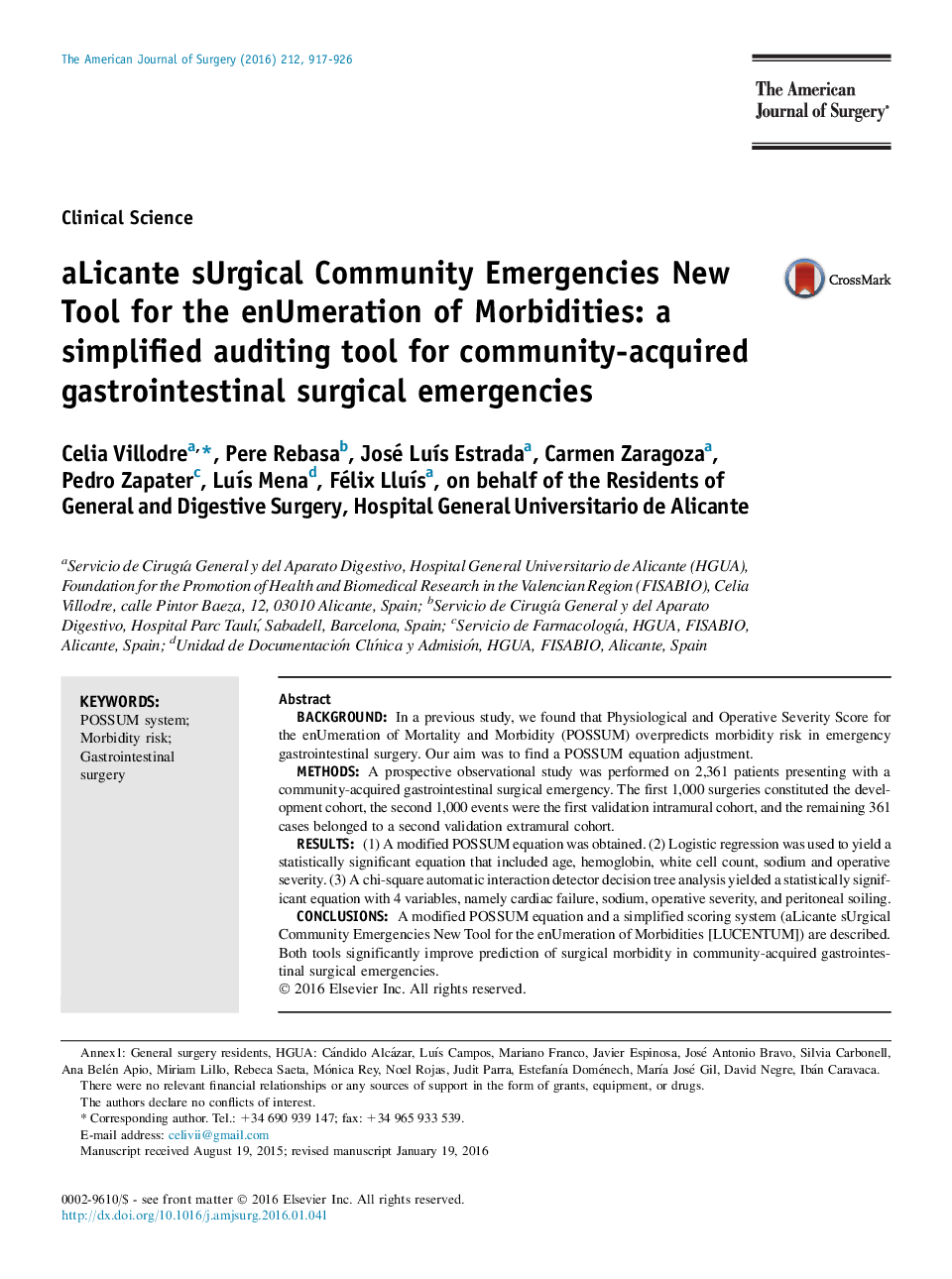| Article ID | Journal | Published Year | Pages | File Type |
|---|---|---|---|---|
| 5731422 | The American Journal of Surgery | 2016 | 10 Pages |
â¢POSSUM overpredicts morbidity risk in emergency gastrointestinal (GI) surgery.â¢We report on a modified POSSUM equation to predict morbidity risk in emergency GI surgery.â¢We developed a new scoring system using fewer variables .â¢Both tools improve morbidity predictionin community-acquired GI surgical emergencies.
BackgroundIn a previous study, we found that Physiological and Operative Severity Score for the enUmeration of Mortality and Morbidity (POSSUM) overpredicts morbidity risk in emergency gastrointestinal surgery. Our aim was to find a POSSUM equation adjustment.MethodsA prospective observational study was performed on 2,361 patients presenting with a community-acquired gastrointestinal surgical emergency. The first 1,000 surgeries constituted the development cohort, the second 1,000 events were the first validation intramural cohort, and the remaining 361 cases belonged to a second validation extramural cohort.Results(1) A modified POSSUM equation was obtained. (2) Logistic regression was used to yield a statistically significant equation that included age, hemoglobin, white cell count, sodium and operative severity. (3) A chi-square automatic interaction detector decision tree analysis yielded a statistically significant equation with 4 variables, namely cardiac failure, sodium, operative severity, and peritoneal soiling.ConclusionsA modified POSSUM equation and a simplified scoring system (aLicante sUrgical Community Emergencies New Tool for the enUmeration of Morbidities [LUCENTUM]) are described. Both tools significantly improve prediction of surgical morbidity in community-acquired gastrointestinal surgical emergencies.
